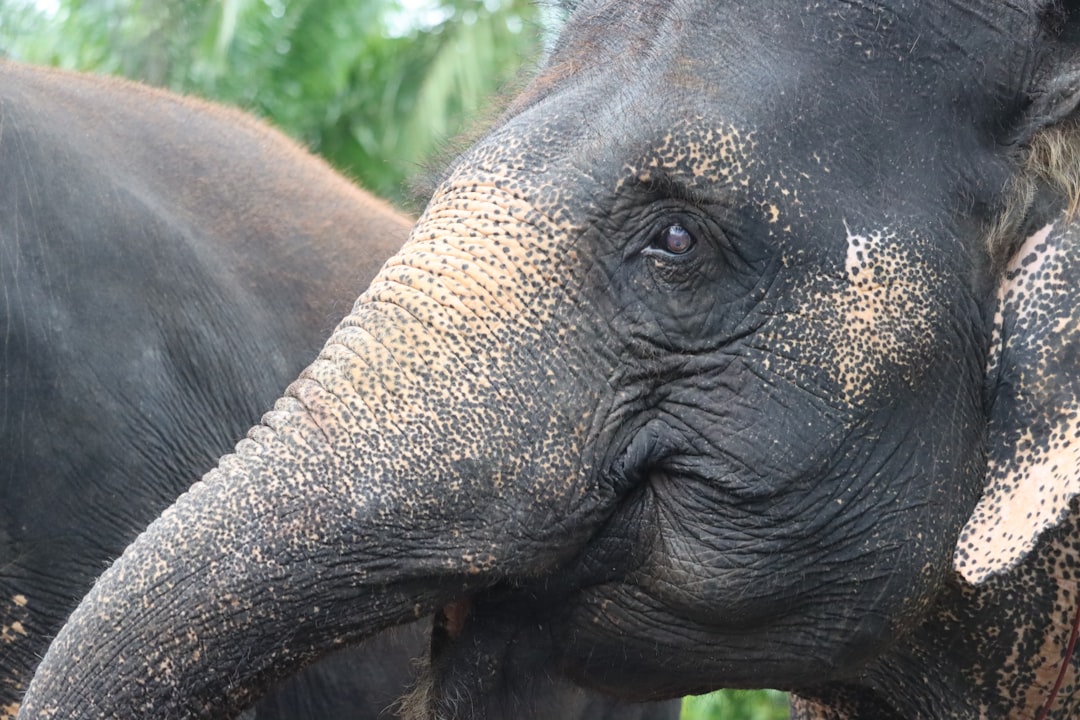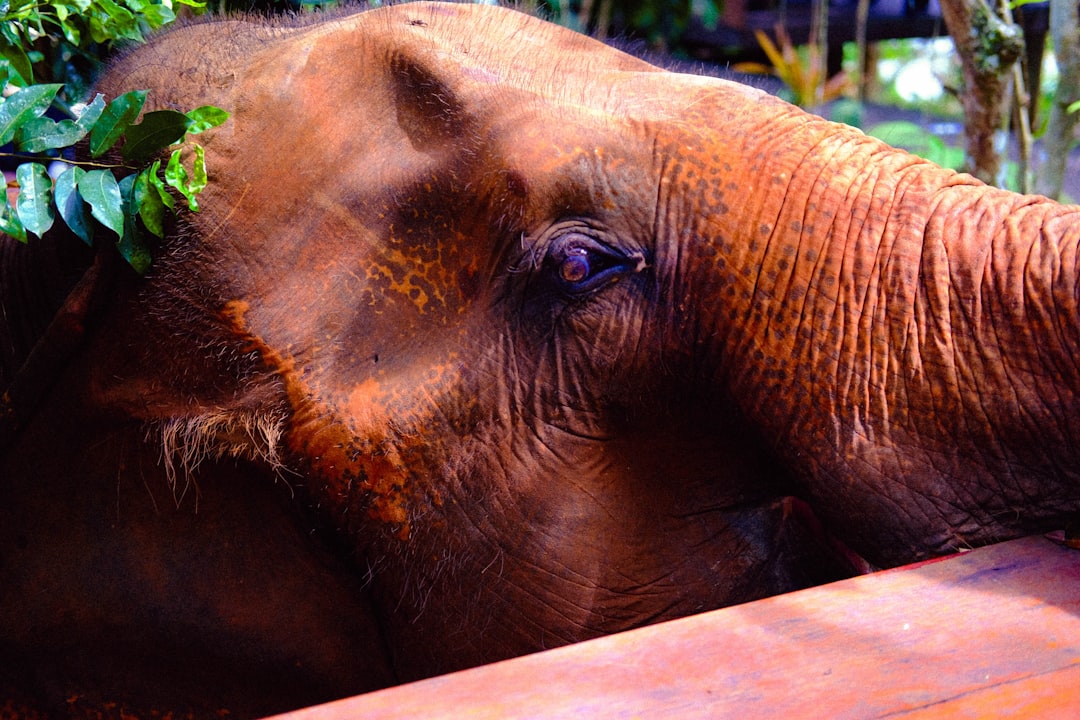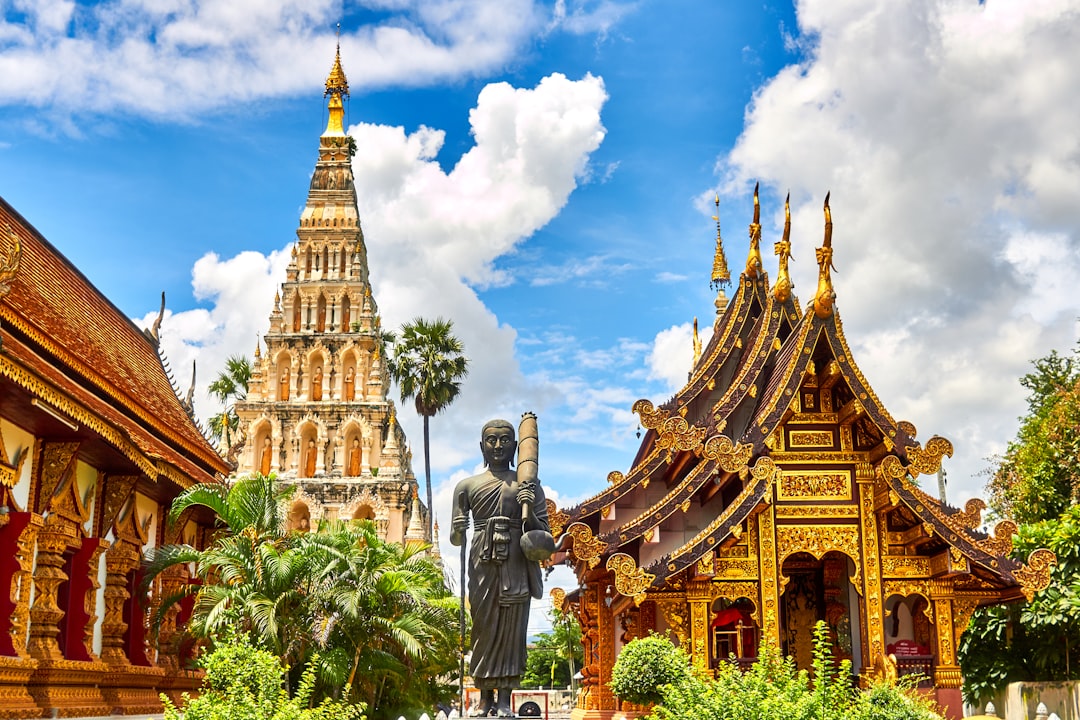7 Ethical Elephant Sanctuaries in Thailand Prioritizing Conservation and Animal Welfare
7 Ethical Elephant Sanctuaries in Thailand Prioritizing Conservation and Animal Welfare - Peaceful Rehabilitation Havens
Thailand's ethical elephant sanctuaries provide a safe and tranquil haven for rescued pachyderms, offering them a chance to recover and thrive in a natural environment.
These sanctuaries, such as Elephant Nature Park and Boon Lott's Elephant Sanctuary, prioritize the well-being of their resident elephants over commercial tourism, ensuring the animals are treated with the utmost care and respect.
By supporting these ethical havens, visitors can play a meaningful role in conserving Thailand's iconic elephants and promoting responsible tourism practices.
Elephants at these sanctuaries display complex social behaviors, forming strong familial bonds and intricate communication patterns that are only now being fully understood by researchers.
The sanctuaries employ innovative water recycling systems that minimize their environmental footprint, allowing them to sustain their elephant populations without depleting local water resources.
Visitors are often amazed to learn that the sanctuaries use advanced monitoring technologies, such as GPS tracking and remote sensing, to ensure the safety and whereabouts of each elephant under their care.
While the primary focus of these havens is on rehabilitation and conservation, some also actively participate in reforestation initiatives, planting thousands of trees to restore the natural habitats of their resident elephants.
7 Ethical Elephant Sanctuaries in Thailand Prioritizing Conservation and Animal Welfare - A Journey Towards Ethical Coexistence
Thailand is home to several ethical elephant sanctuaries that prioritize conservation and animal welfare.
These sanctuaries provide a safe haven for rescued and domesticated elephants, offering visitors the opportunity to interact with these majestic creatures responsibly.
The Phuket Elephant Sanctuary and Friends of the Asian Elephant Hospital Lampang are two examples of reputable sanctuaries that adhere to high standards of animal welfare and rehabilitation.
The sanctuaries employ advanced veterinary techniques, including acupuncture and chiropractic care, to address the unique health needs of their resident elephants, many of whom have endured years of abuse and neglect.
Researchers have discovered that the elephants at these sanctuaries possess remarkable memory capabilities, with the ability to recognize and differentiate between individual humans, even after years of separation.
Interestingly, several sanctuaries have reported instances of "elephant art," where the pachyderms use their trunks to create unique paintings that are later sold to support the sanctuaries' conservation efforts.
Visitors to these sanctuaries are often surprised to learn that the elephants engage in complex social interactions, including grieving rituals when a herd member passes away, demonstrating the depth of their emotional intelligence.
The sanctuaries have pioneered the use of drone technology to monitor the movements and behavior of their elephant herds, providing valuable data for research and conservation efforts.
Surprisingly, some of the sanctuaries have also become havens for other rescued wildlife, such as bears and primates, creating a holistic approach to animal welfare and conservation.
7 Ethical Elephant Sanctuaries in Thailand Prioritizing Conservation and Animal Welfare - Sanctuaries Upholding Animal Welfare
Thailand's ethical elephant sanctuaries prioritize the well-being of their resident pachyderms, providing safe havens for rescued and retired elephants.
These sanctuaries employ innovative practices to monitor the elephants' health and behavior, while also contributing to conservation efforts through habitat restoration and education.
Visitors can participate in responsible interactions with the elephants, supporting the sanctuaries' mission to protect and rehabilitate these majestic creatures.
The Phuket Elephant Sanctuary employs advanced veterinary techniques, including acupuncture and chiropractic care, to address the unique health needs of their resident elephants, many of whom have endured years of abuse and neglect.
Researchers have discovered that the elephants at these sanctuaries possess remarkable memory capabilities, with the ability to recognize and differentiate between individual humans, even after years of separation.
Several sanctuaries have reported instances of "elephant art," where the pachyderms use their trunks to create unique paintings that are later sold to support the sanctuaries' conservation efforts.
Visitors to these sanctuaries are often surprised to learn that the elephants engage in complex social interactions, including grieving rituals when a herd member passes away, demonstrating the depth of their emotional intelligence.
The sanctuaries have pioneered the use of drone technology to monitor the movements and behavior of their elephant herds, providing valuable data for research and conservation efforts.
Surprisingly, some of the sanctuaries have also become havens for other rescued wildlife, such as bears and primates, creating a holistic approach to animal welfare and conservation.
The Friends of the Asian Elephant Hospital Lampang is known for its innovative water recycling systems that minimize the sanctuaries' environmental footprint, allowing them to sustain their elephant populations without depleting local water resources.
Researchers have observed that the elephants at these sanctuaries display complex social behaviors, forming strong familial bonds and intricate communication patterns that are only now being fully understood.
7 Ethical Elephant Sanctuaries in Thailand Prioritizing Conservation and Animal Welfare - Responsible Tourism - A New Perspective
Responsible tourism in Thailand has taken on a new focus, with several elephant sanctuaries prioritizing the ethical treatment and conservation of these majestic creatures.
These sanctuaries, such as Elephant Nature Park and Phuket Elephant Sanctuary, provide safe havens for rescued and retired elephants, offering visitors the opportunity to engage in responsible interactions and support the sanctuaries' vital conservation efforts.
Elephant Nature Park, one of Thailand's premier ethical elephant sanctuaries, was founded by award-winning conservationist Lek Chailert in 1995 and is considered a pioneering project in elephant conservation.
The Phuket Elephant Sanctuary takes a comprehensive approach to elephant welfare, focusing not only on the wellbeing of rescued elephants but also on environmental conservation through its educational programs.
Boon Lott's Elephant Sanctuary in Sukhothai is a small, intimate sanctuary where rescued elephants roam freely over 600 acres of forested land, allowing them to engage in natural behaviors.
The Friends of the Asian Elephant Hospital in Lampang is one of the only dedicated elephant hospitals in the world, providing specialized veterinary care and rehabilitation for rescued pachyderms.
The Mahouts Elephant Foundation and WFFT Thai Elephant Refuge near Hua Hin have pioneered the use of drone technology to monitor the movements and behaviors of their resident elephant herds, aiding in research and conservation efforts.
Several Thai elephant sanctuaries have reported instances of "elephant art," where the pachyderms use their trunks to create unique paintings that are later sold to support the sanctuaries' conservation initiatives.
Researchers have discovered that the elephants at these sanctuaries possess remarkable memory capabilities, with the ability to recognize and differentiate between individual humans, even after years of separation.
Interestingly, some of the Thai elephant sanctuaries have also become havens for other rescued wildlife, such as bears and primates, showcasing a holistic approach to animal welfare and conservation.
7 Ethical Elephant Sanctuaries in Thailand Prioritizing Conservation and Animal Welfare - The Gentle Giants' Guardians
Thailand's ethical elephant sanctuaries have become havens for rescued and retired pachyderms, prioritizing their welfare and conservation over commercial interests.
Innovative practices, such as the use of drone technology and "elephant art," showcase the sanctuaries' commitment to understanding and protecting these gentle giants.
Visitors can engage in responsible interactions with the elephants, supporting the sanctuaries' vital work in rehabilitating and preserving Thailand's iconic elephant population.
Elephant Nature Park, founded in 1995 by conservationist Lek Chailert, is considered a pioneering project in elephant conservation in Thailand.
The Phuket Elephant Sanctuary employs advanced veterinary techniques, including acupuncture and chiropractic care, to address the unique health needs of their resident elephants, many of whom have endured years of abuse and neglect.
Researchers have discovered that the elephants at these sanctuaries possess remarkable memory capabilities, with the ability to recognize and differentiate between individual humans, even after years of separation.
Several sanctuaries, such as Boon Lott's Elephant Sanctuary in Sukhothai, have reported instances of "elephant art," where the pachyderms use their trunks to create unique paintings that are later sold to support the sanctuaries' conservation efforts.
The Friends of the Asian Elephant Hospital in Lampang is one of the only dedicated elephant hospitals in the world, providing specialized veterinary care and rehabilitation for rescued pachyderms.
The Mahouts Elephant Foundation and WFFT Thai Elephant Refuge near Hua Hin have pioneered the use of drone technology to monitor the movements and behaviors of their resident elephant herds, aiding in research and conservation efforts.
Surprisingly, some of the Thai elephant sanctuaries have also become havens for other rescued wildlife, such as bears and primates, showcasing a holistic approach to animal welfare and conservation.
The Phuket Elephant Sanctuary takes a comprehensive approach to elephant welfare, focusing not only on the wellbeing of rescued elephants but also on environmental conservation through its educational programs.
Boon Lott's Elephant Sanctuary in Sukhothai is a small, intimate sanctuary where rescued elephants roam freely over 600 acres of forested land, allowing them to engage in natural behaviors.
The Friends of the Asian Elephant Hospital in Lampang employs innovative water recycling systems that minimize the sanctuaries' environmental footprint, allowing them to sustain their elephant populations without depleting local water resources.
7 Ethical Elephant Sanctuaries in Thailand Prioritizing Conservation and Animal Welfare - Harmony Between Humans and Nature
Innovative sanctuaries like Elephant Nature Park and Phuket Elephant Sanctuary employ advanced monitoring techniques, specialized veterinary care, and even "elephant art" to promote the wellbeing of rescued and retired pachyderms.
These initiatives showcase a profound shift towards a harmonious coexistence between humans and nature, where the gentle giants are celebrated and protected rather than exploited.
Researchers have discovered that the elephants at these sanctuaries possess remarkable memory capabilities, with the ability to recognize and differentiate between individual humans, even after years of separation.
Several sanctuaries have reported instances of "elephant art," where the pachyderms use their trunks to create unique paintings that are later sold to support the sanctuaries' conservation efforts.
Visitors to these sanctuaries are often surprised to learn that the elephants engage in complex social interactions, including grieving rituals when a herd member passes away, demonstrating the depth of their emotional intelligence.
The sanctuaries have pioneered the use of drone technology to monitor the movements and behavior of their elephant herds, providing valuable data for research and conservation efforts.
Surprisingly, some of the sanctuaries have also become havens for other rescued wildlife, such as bears and primates, creating a holistic approach to animal welfare and conservation.
The Friends of the Asian Elephant Hospital Lampang is known for its innovative water recycling systems that minimize the sanctuaries' environmental footprint, allowing them to sustain their elephant populations without depleting local water resources.
Researchers have observed that the elephants at these sanctuaries display complex social behaviors, forming strong familial bonds and intricate communication patterns that are only now being fully understood.
Elephant Nature Park, one of Thailand's premier ethical elephant sanctuaries, was founded by award-winning conservationist Lek Chailert in 1995 and is considered a pioneering project in elephant conservation.
The Phuket Elephant Sanctuary takes a comprehensive approach to elephant welfare, focusing not only on the wellbeing of rescued elephants but also on environmental conservation through its educational programs.
The Mahouts Elephant Foundation and WFFT Thai Elephant Refuge near Hua Hin have pioneered the use of drone technology to monitor the movements and behaviors of their resident elephant herds, aiding in research and conservation efforts.
The Friends of the Asian Elephant Hospital in Lampang is one of the only dedicated elephant hospitals in the world, providing specialized veterinary care and rehabilitation for rescued pachyderms.


